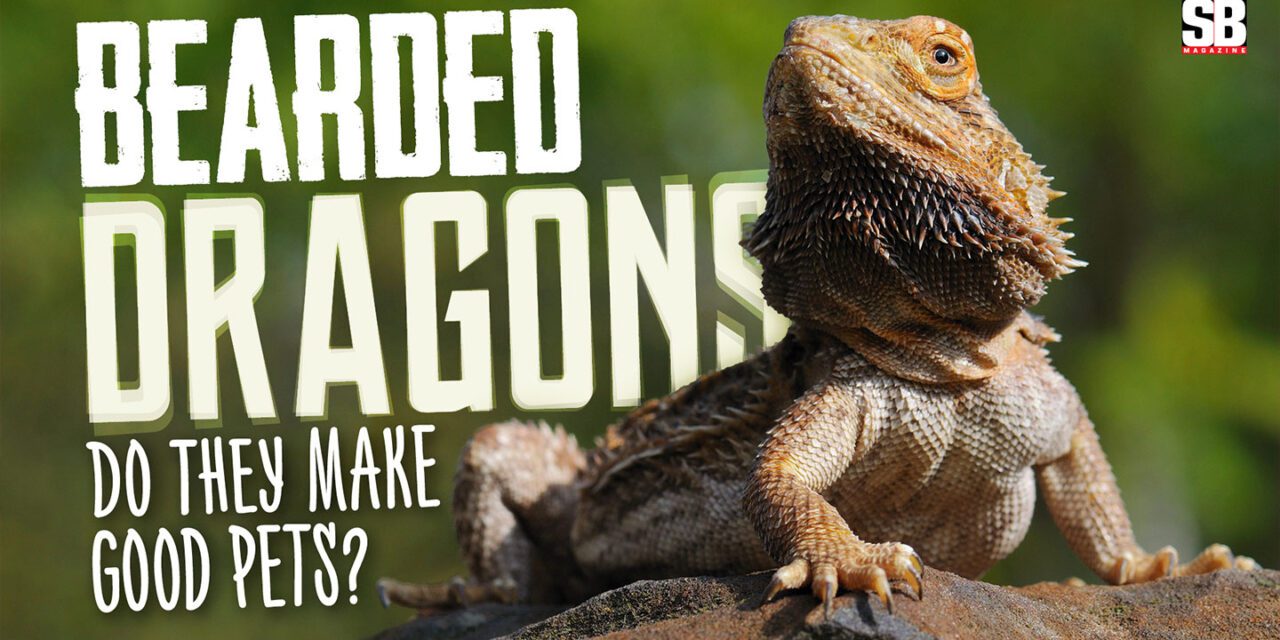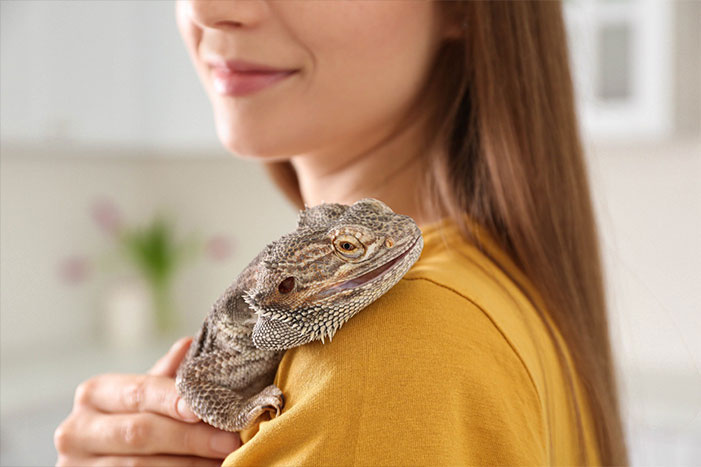When thinking about getting a bearded dragon, the first thing people usually ask is, “Do bearded dragons make good pets?”. The short answer is yes, bearded dragons make GREAT pets! Affectionately called “beardies” by their owners, these exotic lizards from Australia are known to be very friendly and curious little creatures. Because of their good temperament, bearded dragons have become one of the most popular reptile pets. Beardies are active, inquisitive, and fun to watch and play with; however, they require a bit of a learning curve for the beginner reptile pet owner.
Here are a few reasons why a bearded dragon may be the right pet for you.
Behavior
Bearded dragons definitely have the best behavior of any pet lizard. If you handle them gently, beardies are generally easygoing and non-aggressive. They have great personalities and dispositions. Bearded dragons often display amusing behaviors like arm waving, head bobbing, and beard billowing. They will run around their aquarium for attention and stare you down if dinner is late! Beardies enjoy daily interactions with their owners and want to be taken out of their cages and explore your home — under careful supervision, of course.
Sleeping
Bearded dragons are diurnal, which means they are active during the day and sleep at night — just like us humans. So fortunately, bearded dragons won’t keep you up at night scratching around or planning a big nighttime escape like nocturnal pets. Beardies generally wake up around sunrise, however, the time they wake up is affected by environmental factors. They are cold-blooded, which means the temperature affects their daily activities and waking time.
Handling
Smaller animals are usually harder to handle and easier to injure than larger animals, but bearded dragons are generally easy to handle because they’re calm and hardy. Also, the size and temperament of bearded dragons make routine care simple. Beardies are the perfect size to handle and enjoy being handled. The Proper handling of your bearded dragon is crucial to building a solid and trusting bond. Additionally, they are large enough to be taken safely by younger children with little risk to them or the child.
Lifespan
In the wild bearded dragons typically live about five years, but they often live 8-15 years in captivity with proper care and nutrition. Bearded dragons are very robust animals and generally don’t suffer from disease or serious health complications. With adequate housing, a nutritional and balanced diet, and veterinarian check-ups, your bearded dragon will live a long and healthy life, making them great long-term companions. Raising a beardie from a juvenile can be a rewarding and joyful experience.
Cleaning
Fortunately, bearded dragons are one of the easiest pet lizards to maintain. Beardies like keeping themselves clean and don’t smell. However, your bearded dragon’s home will need daily spot cleaning to keep it healthy and happy. You’ll need to spend a few minutes cleaning up any unwanted food and cleaning up droppings each day. With daily care, your bearded dragon’s home will only need a full cleaning once or twice a month.
Feeding
Bearded dragons are omnivores, meaning they eat plant and animal-based foods. Therefore, you’ll need to provide your bearded dragon with a proper diet and plenty of clean water each day. Young bearded dragons are fed once or twice a day, while adult beardies are fed once a day. Luckily, beardies are not fussy eaters. They enjoy a wide variety of insects, vegetables, and fruits. So, finding inexpensive food they like is not too difficult.
Final Thoughts
Bearded dragons are great pets for many people. They are suitable pets for adults and older children. Beardies are friendly, animated, curious, easy to care for, fun to watch and play with, and capable of bonding with their owners. They are hardy and robust animals when cared for properly, but remember, always do your homework about this type of pet or any pet before adding them to your family.










